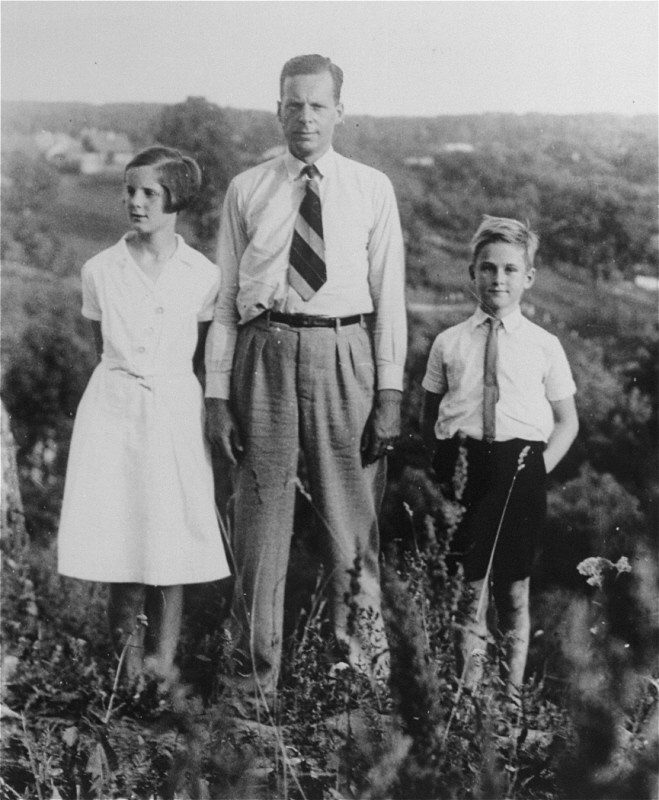
Jan Zwartendijk

Jan Zwartendijk (1896–1976) was a Dutch businessman who worked for Philips, a manufacturer of light bulbs and radios. In May 1939, he became Philips' director of Lithuanian operations. The company's operations, including a workshop of 20 employees, were disrupted in the spring of 1940 after Germany's invasion of the Netherlands prevented the export of radio components to Lithuania.
In June 1940, during the turmoil resulting from the German invasion of the Netherlands and the Soviet occupation of Lithuania, Zwartendijk became acting Dutch consul in Kaunas (Kovno).
With the support of L. P. J. De Decker, the Dutch Ambassador in Riga, Latvia, Zwartendijk aided Jewish refugees by issuing permits for them to enter Curaçao, a Dutch colonial possession in the West Indies. The permits declared, "an entrance visa is not required for the admission of aliens to Surinam, Curaçao, and other Dutch possessions in America." The permits failed to mention that admission was the prerogative of the colonial governors, who rarely allowed it. De Decker and Zwartendijk had reacted to the human crisis in their midst by issuing documents that were useless except for one purpose—they helped refugees flee from Lithuania.
In early August 1940, Soviet authorities confiscated Zwartendijk's office in Kaunas, ending his work and his issuing of "Curaçao visas." A month later, Zwartendijk returned to the German-occupied Netherlands to work in Philips' main office in Eindhoven. For years, Zwartendijk's identity was unknown, and many of those grateful for his help knew him only as "Mr. Philips Radio."
Zwartendijk's postwar recollections suggest he had little faith that the Curaçao notations would secure the refugees' freedom. He nonetheless worked feverishly to fulfill all requests. At first he wrote and signed each visa by hand; he soon had a rubber stamp made that replaced his handwritten notations, making them look more official.
For his efforts on behalf of the refugees in Kaunas, Zwartendijk was posthumously honored, in 1997, as a "Righteous Among the Nations" by Yad Vashem, the Israeli Holocaust Remembrance Authority.
Critical Thinking Questions
What pressures and motivations may have influenced the decisions of rescuers? Are these factors unique to this history or universal?
What pressures and motivations led Zwartendijk to action?
Investigate choices (such as resisting, supporting the regime, remaining indifferent, or other actions) by diplomats during the Holocaust.
How can societies, communities, and individuals reinforce and strengthen the willingness to stand up for others?

